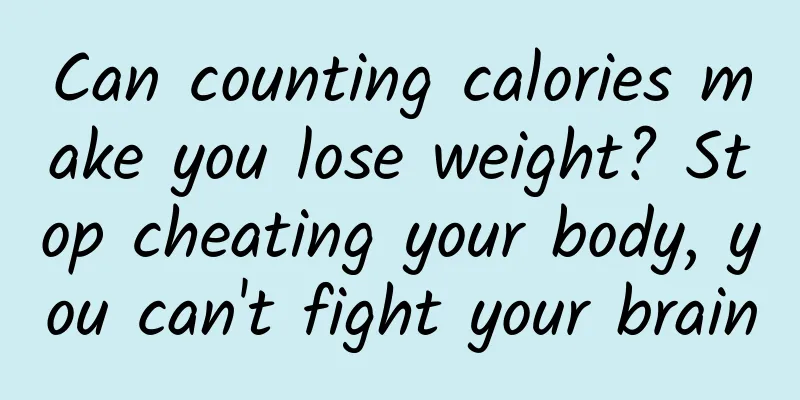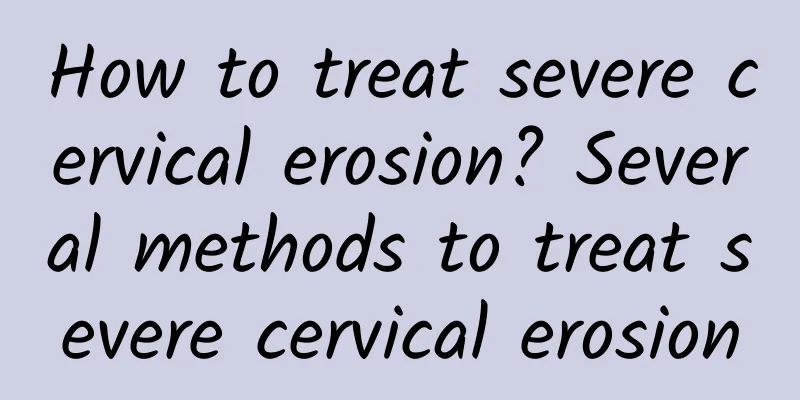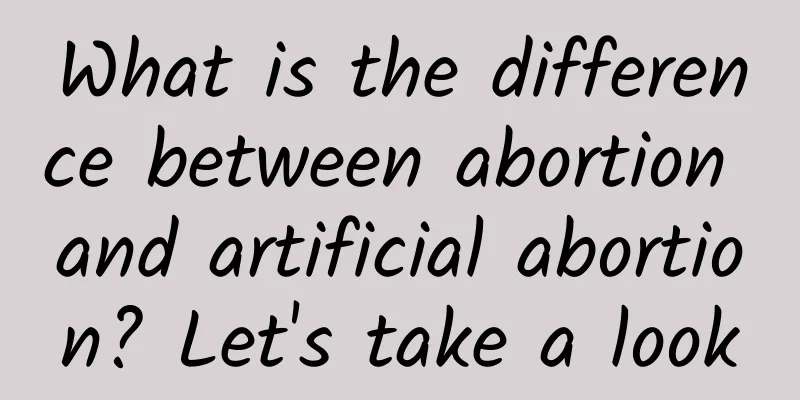Can counting calories make you lose weight? Stop cheating your body, you can't fight your brain

|
You may have noticed that I have repeatedly emphasized "how much nutrition you consume, not the number of calories". For a long time, obesity has been considered to be caused by eating too much and excessive calorie intake, and then most people think that they can lose weight by starting a diet and reducing their intake. It is undeniable that when intake > consumption, long-term calorie surplus accumulation in the body is indeed one of the reasons for weight gain. Seeing clearly is one of the reasons. Correlation does not imply causation. What is being put into the body? 1 calorie of sugar and 1 calorie of olive oil are both literally "1 cal", but they have completely different metabolic reactions in the body. If you are still obsessed with calculating calories and feel a lot of pressure to control them, please let go of this idea first. Maybe it sounds ridiculous to you. Celebrities and media reports all say that losing weight means controlling calorie intake. Hey! Just because everyone does it doesn’t mean you have to do it too. Let’s understand step by step why you should stop counting calories. Calories are reduced, consumption is reduced, and metabolism is also reduced As mentioned earlier, total calorie expenditure (TDEE) includes basal metabolic rate + heat production expenditure (energy burned by the body to digest food) + exercise and non-exercise expenditure (there is also an afterburn effect after engaging in high-intensity exercise). TDEE will fluctuate by about 50% due to these factors. If you reduce your food intake, it means that the thermogenic effect of food will be reduced, which will indirectly affect your overall consumption! Basal metabolic rate, heat production, exercise and non-exercise consumption, any reduction in any of these three may lead to weight gain. This is a reasonable inference. So when you start controlling your calorie intake and continue exercising to burn calories, you will noticeably feel changes in your body shape, but this will start to stagnate after about 3 to 5 months. Then at this time you may reduce your calorie intake again, or increase your exercise. Oh! There was a response again, but after about another 3 months, why does it seem to have stagnated again? It is becoming increasingly difficult to lose weight. Exercising for a long time is very tiring and hard, and I end up entering a negative cycle of world-weariness. One day, I will explode with stress and want to eat a lot! If you were struck by the above paragraph, come and let me tell you why. Food enters the body to provide us with energy. The energy system is constantly entering, exiting and converting to provide the body with what it needs to operate, including heat production, making new proteins, repairing muscles, generating bones, maintaining heart rate and cardiac output, maintaining limb movement, and the normal functioning of organs in the body (liver excretion, kidney detoxification, intestinal digestion, etc.). These energy metabolism processes that you cannot see also require consumption, but they are directly ignored. So what do you do if you cut back on calories but your body still needs energy to function? It means reducing spending to maintain balance. Therefore, if there is not enough calories for the body to produce heat, the body temperature will remain low and you will feel cold; if there is not enough calories for the body to renew cell metabolism, the hair will grow slowly; if there is not enough calories for the heart to pump blood, the heart rate output will decrease; if there is not enough calories for the brain to keep functioning, you will feel tired, irritable, hungry, and unable to think seriously; if there is not enough calories for the body to move, your limbs will begin to feel weak, tired, and lack physical strength. When you reduce your calorie intake, your expenditure will also decrease. When your expenditure decreases, your metabolism will also slow down, resulting in the above mentioned three. If any one of them decreases, it may lead to weight gain! Do you know what metabolism is? If you answered, "Oh! It helps the body burn calories," you are wrong. Metabolism is the general term for chemical reactions that maintain life in organisms. We often hear people say that "metabolism slows down as we age," and this does not simply mean "calorie burning slows down," but the biochemical reactions of the entire body. Simply put, hormones play an important role in helping your body and brain convey messages. Muscle growth and repair depend on growth hormone, blood sugar is controlled by insulin, body temperature is regulated by thyroid hormone, and what about body fat? Academics have discovered that the most important hormone in regulating fat is leptin. If you reduce your food intake, growth hormone will not have enough energy to repair damaged muscles, and basal metabolism will not increase; if you eat high-sugar refined foods, it will stimulate blood sugar spikes and insulin increases, and leptin will not be able to tell the brain "I'm full." In a nutshell, the result of eating less, eating randomly, or not eating is reduced consumption and slower metabolism, which means hormonal disorder. Then, the reason for your weight gain is not calories, but hormonal abnormalities. It makes sense, right? Stop cheating your body, you can't fight your brain In 2008, there was a study in which the subjects adopted a low-carb, low-fat diet, reduced their calorie intake by 500 calories per week and maintained a regular exercise expenditure of 300 calories. After half a year, the subjects lost 10% of their body weight as expected. How long did it last? The result was that within less than a year, I gained back 5% of my original weight. The subjects tried again in the same way and lost 5% of their body weight in the first three months, but it never went down again. So they adjusted their diet to reduce their calorie intake by 400 calories per week and maintained 300 calories of exercise. However, one year later, their weight still did not improve, and they often felt unhappy, irritable and angry in order to suppress their hunger. So the subjects gave up and returned to their original daily intake of 2,000 calories. However, because the previous reduction in calorie intake had already reduced their overall metabolism, their weight increased by 10% more than at the beginning in just three months. I'm sure you don't want this, right? In this study, the subjects continued to exercise every day, but they were still unable to resist the backlash from their bodies and brains. When you reduce your calorie intake, your body has to reduce energy consumption and expenditure in order to maintain a "balance between supply and demand". Because of the reduced intake of food energy, peptide YY, secretin, and cholecystokinin, the satiety hormones that respond to fat and protein, cannot feel "full", thus stimulating an increase in hunger. However, the satiety hormones remain low, making you feel not full even if you eat, and your desire to eat continues to increase, causing uncontrolled overeating. This is why people who are dieting easily feel hungry and are constantly fighting with their brains, because their brains clearly tell them "I'm hungry, I need energy", but they suppress and endure, and finally they can't control themselves and eat and drink a lot. Others may blame you for your weak willpower, or you may think that you have failed to lose weight, but this is not the case. This is a reaction to insufficient calorie intake, low metabolism, and hormonal imbalance. It's not your fault, it's your body protesting. Therefore, don’t be obsessed with the big calorie numbers on the food calorie table. Counting calories will not make you lose weight happily, nor can it maintain the weight loss for long. If eating is a natural survival behavior that cannot be avoided throughout your life, achieving a balance is the right way. This article is from Gaobao Book Edition "Hannah Women's Power Assists You to Gain Muscle and Lose Fat, Keep Fit and Keep Healthy! : A diet concept to transform your body shape and reduce body fat X 21-day high-efficiency bodyweight exercise schedule, eat, move and lose weight at the same time! 》 |
Recommend
Eat ice to cool off but get fatter? This ingredient is super low in calories!
The weather is so hot. If you don’t have some ice...
Clinical manifestations of pelvic inflammatory disease
Among gynecological diseases, pelvic inflammatory...
How to prevent missed miscarriage during pregnancy
Pregnant women are very concerned about how to pr...
New topic of weight loss: African mango seed extract is actually...
Smiling Pharmacist Network has recently written a...
Experts briefly analyze common methods to prevent dysmenorrhea in women
Dysmenorrhea refers to the abdominal pain that wo...
What fruits are good for irregular menstruation?
According to relevant medical experts, menstruati...
What causes ectopic pregnancy?
Ectopic pregnancy is an abnormal pregnancy proces...
What are the dangers of bacterial vaginosis?
Bacterial vaginosis causes sexual disharmony. Aft...
Repeated high-temperature bathing can relieve stress and burn calories in one go
Sweating a lot not only makes your skin more beau...
What are the tests that need to be done for endometriosis?
For the sake of future fertility, many women now ...
Do you know what are the factors that induce vulvar leukoplakia?
Do you know what are the factors that induce vulv...
Specialized hospital for the treatment of congenital absence of vagina
With the increasing number of patients with conge...
It is necessary to detect the symptoms of cervical erosion in time
Cervical erosion is a relatively serious disease ...
How to perform instrumental examination for dysmenorrhea and what are the methods?
Regarding the examination of dysmenorrhea, it can...
What are the main pathologies of ectopic pregnancy?
Everyone has heard of ectopic pregnancy, but many...









